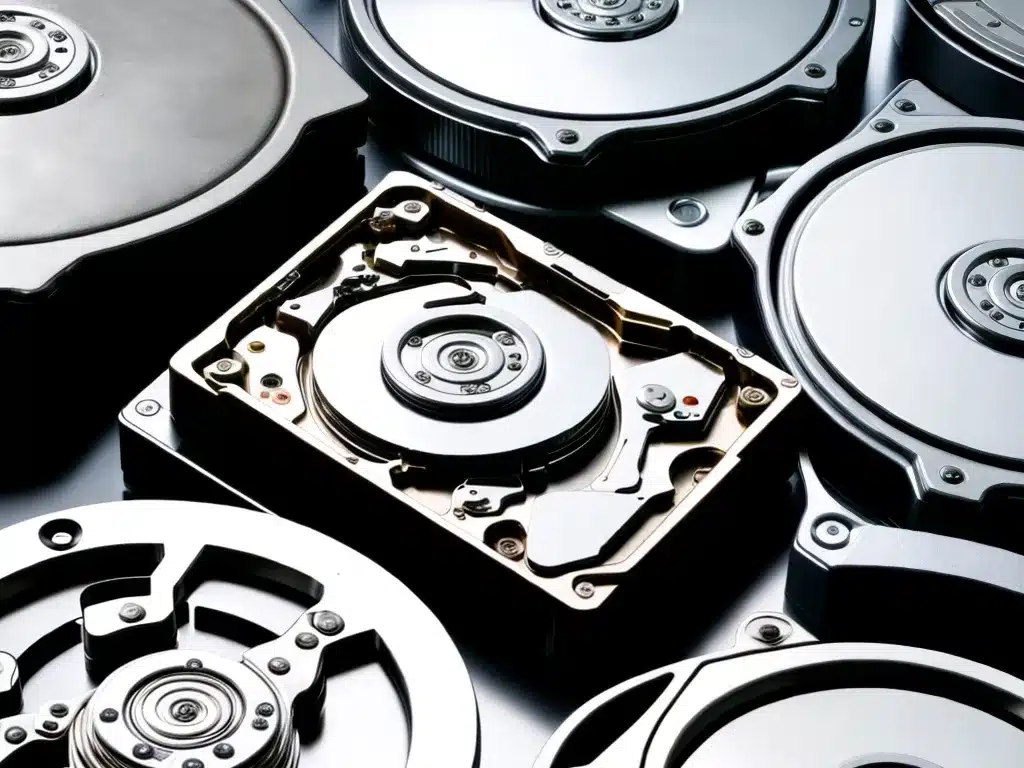
Defragmenting, or defragging, your hard drive used to be an essential maintenance task for keeping your computer running smoothly. But do you still need to defrag in 2024? Let’s take a deep dive into whether defragging is still necessary with modern hard drives and operating systems.
What is Defragmentation?
Defragmentation, or defragging, reorganizes the contents of your hard drive so that the files are stored contiguously instead of being scattered across different locations. This helps optimize performance.
When a file is saved to your hard drive, it gets stored in whichever space is available at that moment. Over time, as files get deleted and new files get saved, the contents of your hard drive can become heavily fragmented.
Having your data fragmented in this way leads to slower read/write speeds. The hard drive heads have to move back and forth across the disk platter more to access file fragments that are scattered all over.
Defragging the drive rewrites the files to contiguous blocks of space, minimizing the travel distance of the heads. This results in faster data access.
Do You Still Need to Defrag Traditional Hard Disk Drives?
Yes, defragging is still recommended for traditional spinning hard disk drives (HDDs).
Fragmentation continues to occur on HDDs as files get saved, deleted, and overwritten. Accessing fragmented data on an HDD results in a lot of random access activity as the read/write heads move rapidly back and forth.
Defragging an HDD minimizes fragmentation and makes the data access more sequential. This can provide a noticeable boost in system performance.
According to Microsoft, regularly scheduled defragmentation helps traditional HDDs function optimally. Many HDD manufacturers also recommend periodically defragging for peak performance.
Do You Need to Defrag Solid State Drives?
Defragging is generally not necessary for solid state drives (SSDs).
Unlike HDDs, SSDs have no moving parts. They use microchips to store data electronically. This completely eliminates the mechanical delays faced by HDDs when accessing fragmented files.
In fact, excessive defragging can actually shorten the lifespan of SSDs unnecessarily by using up their limited number of write cycles.
Most modern operating systems like Windows automatically detect SSDs and disable scheduled defragging. Manual defragmentation is also not recommended for SSDs in most cases.
However, there are some exceptions where defragging an SSD may provide slight benefits:
- After installing major Windows updates
- If there is excessive file fragmentation from inadequate TRIM support
- On budget SSDs nearing the end of their lifespan
Overall though, defragging is typically not useful for mainstream SSDs under normal usage. The inbuilt optimization like TRIM keeps them running fast already.
Does the Operating System Matter?
Modern operating systems have made incremental improvements that reduce the need for manual defragmentation in many cases.
Windows:
- Windows automatically schedules periodic defragging for HDDs
- Defragging is disabled by default for SSDs
- Windows has Background Intelligent Transfer Service (BITS) that helps avoid fragmentation in the first place
Mac OS X:
- Automatically defragments files less than 20 MB in size
- Performs low-level optimization of larger files when the computer is idle
- Third party utilities like iDefrag are available for more control
Linux:
- Most Linux filesystems like Ext4 are far less prone to fragmentation versus Windows
- File fragmentation is managed automatically without the need for manual defragging
So modern operating systems generally ensure optimum performance with minimal input needed from the user.
When Should You Defrag Your Hard Drive?
-
For HDDs – Periodically defragging is still recommended. Do it once every few months for optimal performance.
-
For SSDs – Defragging is typically not necessary. The operating system already optimizes SSDs automatically.
-
New computer – Defragging is not needed right away on a new system. Wait for a few months first.
-
Noticeably slow performance – Try defragging if your HDD computer feels abnormally slow during daily use.
-
Before major OS updates – Defragging right before a big Windows/Mac OS update can help the process go smoothly.
-
When drive space is low – Heavily filled drives can experience more fragmentation, so defrag occasionally if your disk is nearly full.
Conclusion
Defragmenting used to be vital for all computers. But SSDs and better operating system algorithms have reduced how often it needs to be done. Still, periodic defragging continues to provide measurable benefits for traditional HDDs. Just don’t overdo it on SSDs where it is rarely helpful nowadays. Evaluate your own computer’s file system and hardware, and defrag only when truly required.












